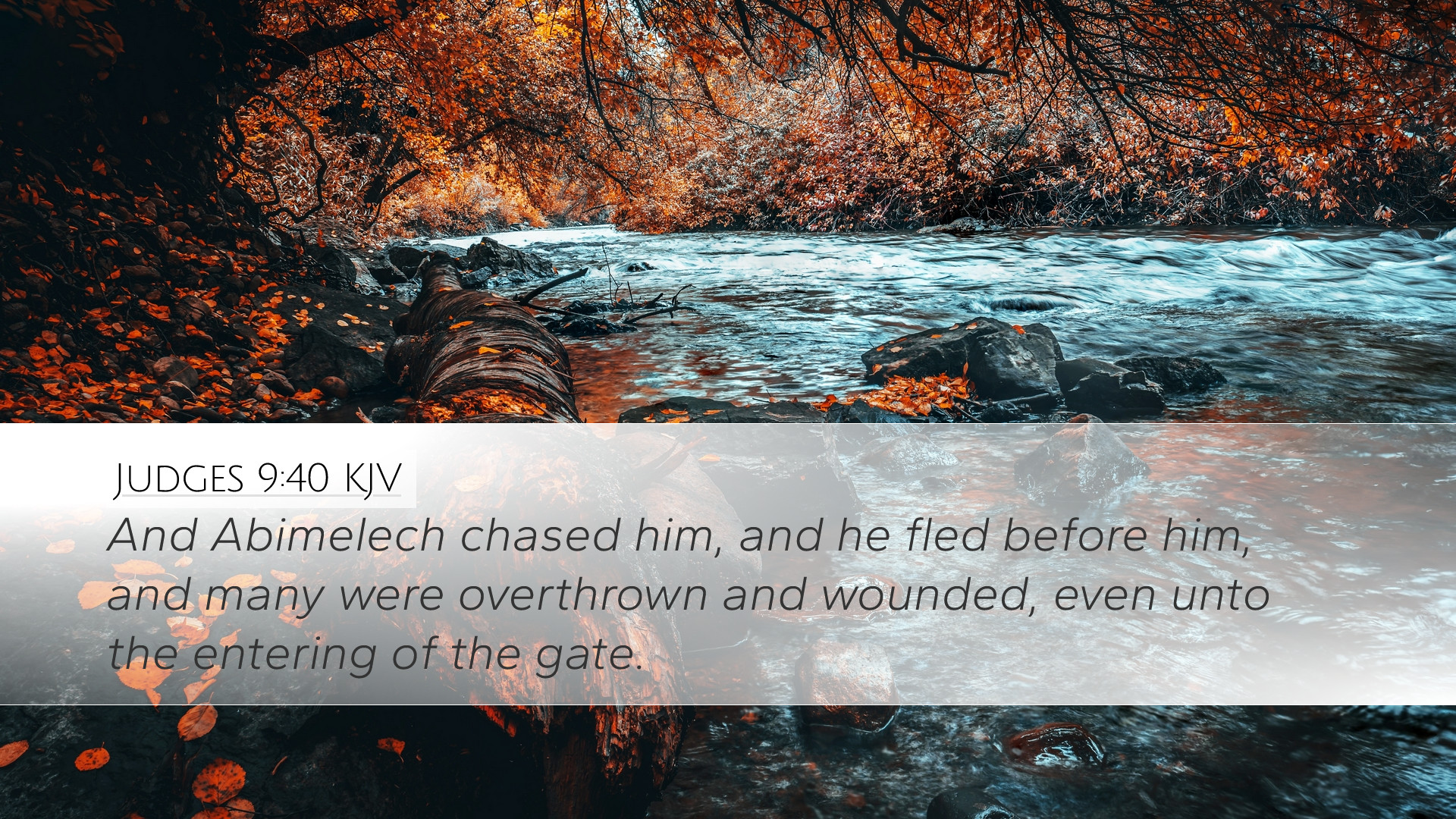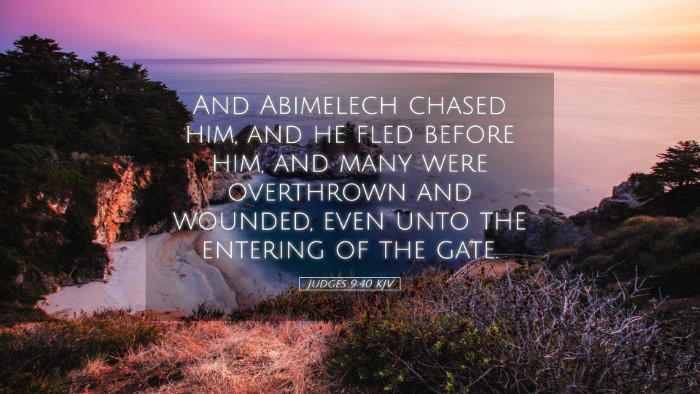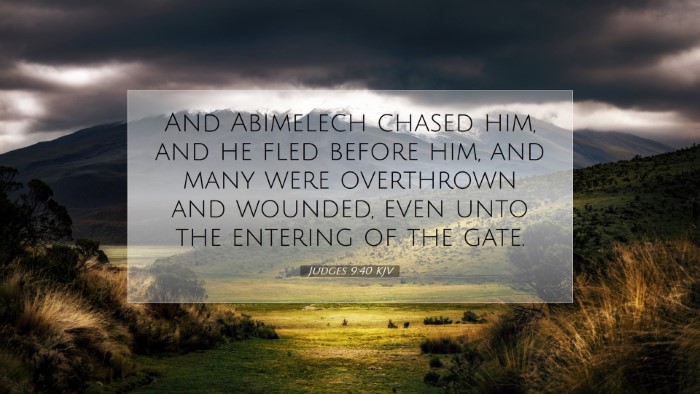Commentary on Judges 9:40
Introduction
The verse BibleVerseID: 07009040, from the book of Judges, captures a pivotal moment in Israel's tumultuous history. Scholars have long noted its implications and the broader themes it encapsulates. This commentary synthesizes insights from prominent public domain commentaries to bring forth a detailed and nuanced understanding of this passage.
Contextual Background
The narrative of Judges reflects a cycle of sin, servitude, supplication, surrender, and salvation repeated throughout Israel’s history. Judges 9 describes Abimelech's rise to power, his violent consolidation of leadership, and the ensuing conflict. This verse specifically illustrates the turning point of a fierce battle, representative of Israel's internal strife.
Verse Exegesis
“And Abimelech chased him, and he fled before him….” (Judges 9:40)
In this brief yet potent statement, we see the dynamics of conflict in play. Abimelech, the son of Gideon, symbolizes the destructive quest for illegitimate power, while the fleeing party reflects those who would rather escape the clutches of tyranny than confront it directly.
Character Analysis
- Abimelech: A complex character, Abimelech represents the antithesis of his father Gideon’s legacy. His ruthless ambition and willingness to use violence demonstrate the darker aspects of leadership devoid of divine endorsement.
- His Opponent: The identity of Abimelech's opponent is less critical than the act of fleeing itself. It symbolizes a broader truth about those who suffer under tyrannical regimes; their instinct is survival, often leading to disunity among the oppressed.
Theological Themes
This verse encapsulates several critical theological themes:
- Human Ambition and its Consequences: The actions of Abimelech illustrate the relentless pursuit of power, which often leads to moral decay and chaos.
- The Nature of Leadership: The concept of leadership in the biblical narrative is contrasted. True leadership is found in serving others, while false leadership, exemplified by Abimelech, results in destruction and division.
- Divine Justice: Many commentators, including Albert Barnes, suggest that Abimelech's pursuit of power was a result of divine judgment against Israel for their idolatry and rejection of God’s appointed leaders.
Historical Context
The Book of Judges was likely written to provide Israel with reflection on their past failures and successes. Abimelech’s story serves as a cautionary tale regarding the consequences of straying from God's ordained path. Adam Clarke points out how Israel’s cyclic patterns of rebellion highlight the necessity for spiritual renewal and the centrality of adhering to God’s covenant amidst societal breakdown.
Practical Application
In the ecclesial context, Judges 9:40 can evoke several considerations for modern believers:
- Emerging Leaders: Church leaders must assess their motivations and methods for acquiring leadership. Are they reflective of Christ’s servant leadership, or do they mirror Abimelech's ruthless approach?
- Conflict Resolution: The fleeing of the opponent reminds us of the need for reconciliation strategies within the church, emphasizing that unity supersedes the desire for power.
- Divine Oversight: Believers ought to be reminded that God watches over justice, and even in the face of injustice, He will eventually execute His will in the matters of the heart.
Conclusion
Judges 9:40 is a rich verse that, when examined through the lens of various biblical commentators, reveals profound truths about human nature, leadership, and divine justice. For pastors, theologians, and students of the Word, it is a reminder of the ongoing struggle between good and evil in human affairs and the importance of aligning leadership with God’s principles. As mirrored in the cycles of the Judges, today’s believers are also called into a transformative narrative that seeks redemption, restoration, and righteousness.


